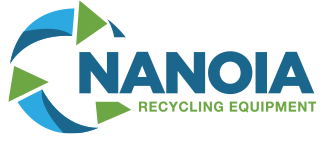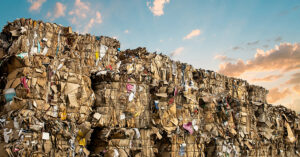In an era where sustainability is not just a trend but a necessity, managing textile waste has become a crucial concern for businesses.
The fashion industry, in particular, is notorious for its significant environmental footprint, with textile waste contributing to pollution and landfill overcrowding.
However, effective waste management practices can mitigate these impacts, offering benefits that extend beyond environmental conservation to include cost savings and enhanced brand reputation.
Understanding Textile Waste
Types of Textile Waste
Textile waste can be categorized into pre-consumer, post-consumer, and industrial waste. Pre-consumer waste includes scraps and trimmings from the production process, while post-consumer waste refers to discarded clothing and textiles by consumers.
Industrial waste encompasses textiles used in various industries, such as automotive or healthcare, that are discarded after use.
Sources of Textile Waste
The sources of textile waste are diverse, spanning manufacturing processes, the retail and fashion industry, and consumer usage and disposal. In manufacturing, offcuts and defective products contribute to waste.
Retailers face returns and unsold stock, while consumers discard clothing due to changing trends or wear and tear.
Challenges in Textile Waste Management
Managing textile waste presents several challenges, including the high volume of waste generated, the complexity of materials and blends, and the lack of recycling infrastructure. These factors make it difficult to efficiently collect, sort, and recycle textile waste.
Strategies for Textile Waste Management
Reduce, Reuse, Recycle Approach
Adopting the reduce, reuse, recycle approach is essential for effective textile waste management. Businesses can implement waste reduction practices in production, encourage the reuse and repurposing of textiles, and establish recycling programs to divert waste from landfills.
Technological Innovations
Technological advancements play a pivotal role in enhancing textile waste management. Innovations in textile recycling technologies, automation in waste sorting and processing, and the development of biodegradable and eco-friendly materials contribute to more sustainable practices.
Collaboration and Partnerships
Collaborating with waste management companies, partnering with NGOs and environmental organizations, and engaging with the community and stakeholders are crucial for successful textile waste management.
These partnerships can provide access to resources, expertise, and networks that facilitate effective waste handling.
The Role of Textile Balers in Waste Management
What is a Textile Baler?
A textile baler is a machine that compresses textile waste into compact bales, making it easier to handle, transport, and recycle. There are various types of textile balers, each suited to different materials and volumes of waste. The benefits of using balers for textile waste include improved efficiency, cost savings, and reduced environmental impact.
How Textile Balers Work
Textile balers operate by compressing loose textile materials into dense bales, which are then secured with straps or wires for easy handling. The process is suitable for a wide range of materials, including clothing, linens, and industrial textiles.
Proper safety and maintenance practices are essential to ensure the baler operates effectively and safely.
Advantages of Textile Balers for Businesses
For businesses, textile balers offer several advantages. They provide an efficient way to manage and store waste, reduce costs associated with waste handling and transportation, and contribute to environmental sustainability by reducing the volume of waste sent to landfills.
Contact Nanoia Recycling Equipment for Custom Solutions
Textile waste management is a critical aspect of sustainable business practices. By understanding the types and sources of waste, implementing effective management strategies, and utilizing tools like textile balers, businesses can reduce their environmental footprint, save costs, and contribute to a more sustainable future.
At Nanoia Recycling Equipment, we specialize in providing comprehensive solutions for textile waste management. Our range of balers, compactors, and crushers is designed to meet the specific needs of businesses looking to manage their textile waste efficiently.
Contact us today for a custom solution that aligns with your sustainability goals. Visit our contact page to get started.






